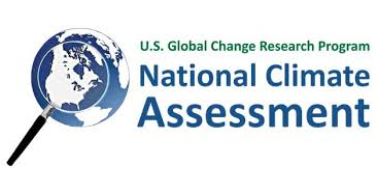The National Academies of Science, Engineering and Medicine (NASEM) have peer reviewed Volume 1 of the latest National Climate Assessment and they are scheduled to review Volume II, which will be the main volume. The Volume I review committee contained no skeptics, just well known alarmists. This is a direct violation of OMB’s rules for peer review of federal scientific assessments. NASEM should either shape up or ship out.
The US Office of Management and Budget, in the Executive Office of the President, makes a lot of government-wide rules for agency management. In that regard, it has long had very specific rules for peer review of federal scientific assessments. These are found in their 2004 “Final Information Quality Bulletin for Peer Review.”
The issue of including scientific controversy is specifically addressed in the Bulletin.
For example, they say this:
“Balance. While expertise is the primary consideration, reviewers should also be selected to represent a diversity of scientific perspectives relevant to the subject. On most controversial issues, there exists a range of respected scientific viewpoints regarding interpretation of the available literature. Inviting reviewers with competing views on the science may lead to a sharper, more focused peer review.” (Emphasis added)
The climate change debate between alarmists and skeptics is a paradigm case of a controversial issue with a diversity of scientific perspectives. Thus the Bulletin clearly requires that reviewers be selected to properly represent this diversity.
Ironically, the above statement is followed by this:
“Indeed, as a final layer of review, some organizations (e.g., the National Academy of Sciences) specifically recruit reviewers with strong opinions to test the scientific strength and balance of their reports.“
So the usual practices of the National Academy are considered a good example of peer review that includes diverse opinions.
If so then it is unfortunate indeed that the combined three Academies chose to exclude skeptics from the peer review of Volume I of the National Climate Assessment. Note that at the time Volume I was titled simply the “Climate Science Special Report” (CSSR) of the US Global Change Research Program. The NASEM peer review of the CSSR is here.
The Volume I/CSSR review committee had 11 reviewers, none of which are skeptics of climate alarmism. Many are leaders or ex-leaders of federally funded, high profile alarmist research centers. Several are directly involved with the UN, especially the IPCC.
Appendix A of the NASEM review includes all 563 individual review comments. Examining a large sample of these comments revealed none of a skeptical nature, even though Volume I is wildly alarmist. On the contrary, many comments proposed strengthening the alarmism.
Mind you the National Academies are not bound by the OMB Bulletin, because NASEM is not a Federal Agency. But the 13 federal agencies that make up the US Global Change Research Program (USGCRP), which are jointly preparing the National Climate Assessment, are required to comply with the Bulletin.
Given that the NASEM peer review fails to meet the Bulletin requirements, it follows that the required peer review has not been done for Volume I. Moreover, unless there is a big change at the NASEM, their review of Volume II will likewise fail to comply with the OMB Bulletin.
The obvious solution is for the USGCRP to conduct its own peer reviews of Volumes I and II, this time in clear compliance with the Bulletin. This means that there will be a significant representation of skeptics among the reviewers.
There is another statement in the Bulletin that is worth noting, namely this:
“Uncertainty is inherent in science, and in many cases individual studies do not produce conclusive evidence. Thus, when an agency generates a scientific assessment, it is presenting its scientific judgment about the accumulated evidence rather than scientific fact. Specialists attempt to reach a consensus by weighing the accumulated evidence. Peer reviewers can make an important contribution by distinguishing scientific facts from professional judgments.” (Emphasis added.)
Uncertainty is one of the major features of the scientific debate between climate change alarmists and skeptics. Conversely, the assertion of speculation as scientific fact is one of the major flaws in both Volume I of the National Climate Assessment and in the draft Volume II that is presently out for public comment. So in keeping with the above requirement, the peer reviews should focus on separating established facts from mere alarmist conjecture and speculation.
The basic point here is very simple. The USGCRP is required to meet the standards for peer review of the National Climate Assessment that are set by the OMB Bulletin. The NASEM review of Volume I does not comply with the Bulletin, because no skeptics were on the review committee. So the National Climate Assessment has yet to be properly peer reviewed.
In issuing the final Volume I, the USGCRP is out of compliance with the Bulletin. If the same thing happens with Volume II it will be that much worse. OMB should intervene at this point and enforce its peer review rules.
